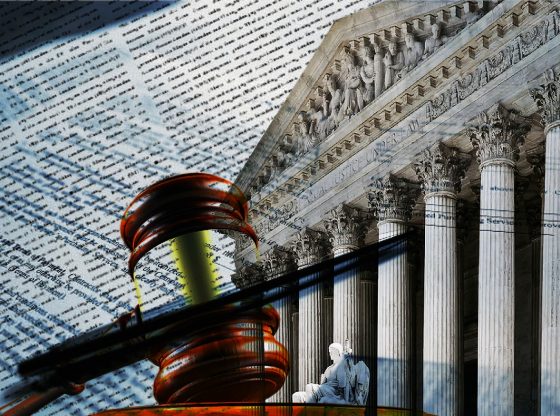The Supreme Court declined Friday to allow a Missouri law preventing local law enforcement officials from enforcing federal gun laws to take effect.
The state asked the justices early October to block a federal court’s ruling against its Second Amendment Preservation Act, which exposes local police that aid in the enforcement of certain federal gun laws to up to $50,000 penalties. The justices declined to do so in a brief order Friday.
“Like many States, Missouri has disagreements with the Federal Government about the correct interpretation of the Second Amendment—and thus how to interpret and enforce certain federal firearms statutes,” Missouri wrote in its application. “In light of this Court’s recent Second Amendment decisions, the Missouri General Assembly believes that a small number of federal statutes may be unconstitutional; that the doctrine in this area is changing…and that Missouri officials ought to strive to comply with the Second Amendment to the maximum extent possible.”
Justice Neil Gorsuch suggested in an opinion joined by Justice Samuel Alito that private parties may still be able to enforce the law.
“With the understanding that the district court ‘prohibited’ only ‘implementation and enforcement’ of H. B. 85 by the State of ‘Missouri and its officers, agents, and employees’ and ‘any others in active concert with such individuals,’ App. to Emergency Application 29a, I agree with the denial of the application for a stay under the present circumstances,” Gorsuch wrote. “An injunction purporting to bind private parties not before the district court or the ‘challenged’ provisions ‘themselves,’ however, would be inconsistent with the ‘equitable powers of federal courts.’”
Justice Clarence Thomas would have granted the state’s application, the order notes.
U.S. District Judge Brian Wimes, an Obama appointee, said in his March ruling that the statute at best “causes confusion among state law enforcement officials who are deputized for federal task force operations” and at worst “is unconstitutional on its face.”
The Department of Justice (DOJ) sued in February 2022 to block the law, which Republican Gov. Mike Parson signed in 2021.
Katelynn Richardson on October 20, 2023












